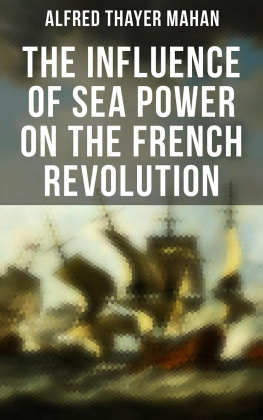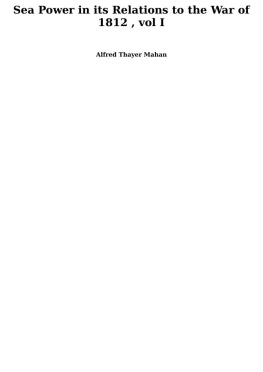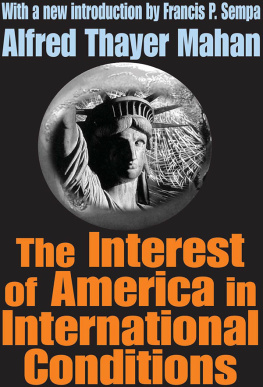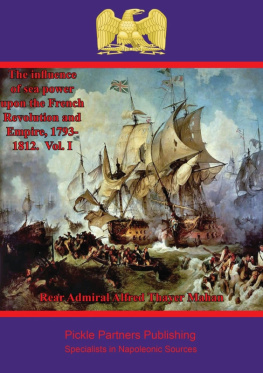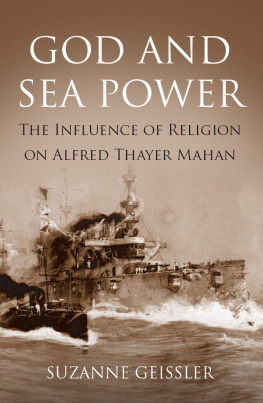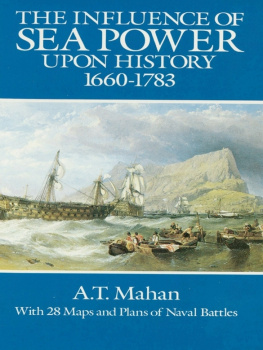CHAPTER I.
Table of Contents
INTRODUCTORY.
Outline of Events in Europe, 17831793.
THE ten years following the Peace of Versailles, September 3, 1783, coming between the two great wars of American Independence and of the French Revolution, seem like a time of stagnation. The muttering and heaving which foretold the oncome of the later struggle were indeed to be heard by those whose ears were open, long before 1793. The opening events and violences which marked the political revolution were of earlier date, and war with Austria and Prussia began even in 1792; but the year 1793 stands out with a peculiar prominence, marked as it is by the murder of the king and queen, the beginning of the Reign of Terror, and the outbreak of hostilities with the great Sea Power, whose stubborn, relentless purpose and mighty wealth were to exert the decisive influence upon the result of the war. Untiring in sustaining with her gold the poorer powers of the Continent against the common enemy, dogged in bearing up alone the burden of the war, when one by one her allies dropped away, the year in which Great Britain, with her fleets, her commerce, and her money, rose against the French republic, with its conquering armies, its ruined navy, and its bankrupt treasury, may well be taken as the beginning of that tremendous strife which ended at Waterloo.
To the citizen of the United States, the war whose results were summed up and sealed in the Treaty of Versailles is a landmark of history surpassing all others in interest and importance. His sympathies are stirred by the sufferings of the many, his pride animated by the noble constancy of the few whose names will be forever identified with the birth-throes of his country. Yet in a less degree this feeling may well be shared by a native of Western Europe, though he have not the same vivid impression of the strife, which, in so distant a land and on so small a scale, brought a new nation to life. This indeed was the great outcome of that war; but in its progress, Europe, India, and the Sea had been the scenes of deeds of arms far more dazzling and at times much nearer home than the obscure contest in America. In dramatic effect nothing has exceeded the three-years siege of Gibraltar, teeming as it did with exciting interest, fluctuating hopes and fears, triumphant expectation and bitter disappointment. England from her shores saw gathered in the Channel sixty-six French and Spanish ships-of-the-linea force larger than had ever threatened her since the days of the Great Armada, and before which her inferior numbers had to fly, for the first time, to the shelter of her ports. Rodney and Suffren had conducted sea campaigns, fought sea fights, and won sea victories which stirred beyond the common the hearts of men in their day, and which still stand conspicuous in the story of either navy. In one respect above all, this war was distinguished; in the development, on both sides, of naval power. Never since the days of De Ruyter and Tourville had so close a balance of strength been seen upon the seas. Never since the Peace of Versailles to our own day has there been such an approach to equality between the parties to a sea war.
The three maritime nations issued wearied from the strife, as did also America; but the latter, though with many difficulties still to meet, was vigorous in youth and unfettered by bad political traditions. The colonists of yesterday were thoroughly fitted to retrieve their own fortunes and those of their country; to use the boundless resources which Divine Providence had made ready to their hands. It was quite otherwise with France and Spain; while Great Britain, though untouched with the seeds of decay that tainted her rivals, was weighed down with a heavy feeling of overthrow, loss and humiliation, which for the moment hid from her eyes the glory and wealth yet within her reach. Colonial ambition was still at its loftiest height among the nations of Europe, and she had lost her greatest, most powerful colony. Not only the king and the lords, but the mass of the people had set their hearts upon keeping America. Men of all classes had predicted ruin to the Empire if it parted with such a possession; and now they had lost it, wrung from them after a bitter struggle, in which their old enemies had overborne them on the field they called their own, the Sea. The Sea Power of Great Britain had been unequal to the task laid upon it, and so America was gone. A less resolute people might have lost hope.
If the triumph of France and Spain was proportionate to their rival's loss, this was no true measure of their gains, nor of the relative positions of the three in the years after the war. American Independence profited neither France nor Spain. The latter had indeed won back the Floridas and Minorca; but she had utterly failed before Gibraltar, and Jamaica had not even been attacked. Minorca, as Nelson afterwards said, was always England's when she wanted it. It belonged not to this power or that, but to the nation that controlled the sea; so England retook it in 1798, when her fleets again entered the Mediterranean. France had gained even less than Spain. Her trading posts in India had been restored; but they, even more than Minorca, were defenceless unless in free communication with and supported by the sea power of the mother-country. In the West Indies she returned to Great Britain more than the latter did to her. "France," says a French historian, "had accomplished the duties of her providential mission" (in freeing America); "her moral interests, the interests of her glory and of her ideas were satisfied. The interests of her material power had been badly defended by her government; the only solid advantage she had obtained was depriving England of Minorca, that curb on Toulon, far more dangerous to us when in their hands than is Gibraltar." [1]
Unfortunately at this moment France was far richer in ideas, moral and political, and in renown, than in solid power. The increasing embarrassment of the Treasury forced her to stay her hand, and to yield to her rival terms of peace utterly beyond what the seeming strength of either side justified. The French navy had reaped glory in the five years of war; not so much, nearly, as French writers claim for it, but still it had done well, and the long contest must have increased the efficiency of its officers along with their growing experience. A little more time only was wanted for France, allied to Spain, to gain lasting results as well as passing fame. This time poverty refused her.
Spain, as for centuries back, still depended for her income almost wholly upon her treasure ships from America. Always risked by war, this supply became more than doubtful when the undisputed control of the sea passed to an enemy. The policy of Spain, as to peace or war, was therefore tied fast to that of France, without whose navy her shipping lay at England's mercy; and, though the national pride clung obstinately to its claim for Gibraltar, it was forced to give way.
Great Britain alone, after all her losses, rested on a solid foundation of strength. The American contest by itself had cost her nearly 100,000,000, and rather more than that amount had during the war been added to the national debt; but two years later this had ceased to increase, and soon the income of the State was greater than the outgo. Before the end of 1783, the second William Pitt, then a young man of twenty-four, became prime minister. With genius and aims specially fitted to the restorative duties of a time of peace, the first of British finance ministers in the opinion of Mr. Gladstone, [2] he bent his great powers to fostering the commerce and wealth of the British people. With firm but skilful hand he removed, as far as the prejudices of the day would permit and in the face of much opposition, the fetters, forged by a mistaken policy, that hampered the trade of the Empire. Promoting the exchange of goods with other nations, simplifying the collection of taxes and the revenue, he added at once to the wealth of the people and to the income of the State. Although very small in amount, as compared with the enormous figures of later years, the exports and imports of Great Britain increased over fifty per cent between the years 1784 and 1792. Even with the lately severed colonies of North America the same rate of gain, as compared with the trade before the war, held good; while with the old enemy of his father and of England, with France, there was concluded in 1786 a treaty of commerce which was exceedingly liberal for those days, and will, it is said, bear a favorable comparison with any former or subsequent treaty between the two countries. "In the course of little more than three years from Mr. Pitt's acceptance of office as First Lord of the Treasury," says the eulogist of his distinguished rival, Fox, "great commercial and financial reforms had been effected. The nation overcoming its difficulties, and rising buoyant from depression, began rapidly to increase its wealth, to revive its spirit, and renew its strength." [3]


